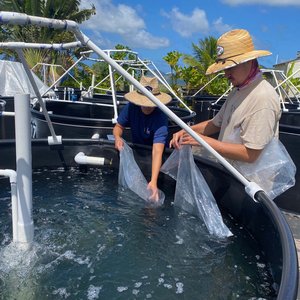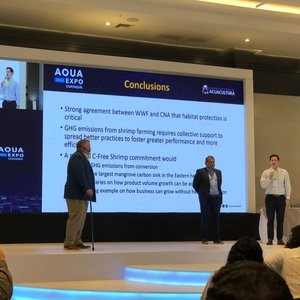Funded by the Norwegian Agency for Development Cooperation (Norad), Samaki Poa is a project focused on capacity-building across the aquaculture value chain with the participation of five stakeholders from East Africa and Europe - Blue Planet, Lake Harvest Group, Larive International, Lattice Aquaculture, and Skretting/Tunga Nutrition.
Aimed to reach over 10,000 current and aspiring fish farmers throughout the continent, the consortium will develop an e-curriculum, consisting of animated videos covering all relevant topics for tilapia and catfish farming, which will be freely available here.
To make the curriculum's contents available for those without internet access, on-site training will be arranged in five Tunga Nutrition farm supply hubs. Furthermore, a new aquaculture academy will be established in Jinja, Uganda, following the Kenyan model.
Samaki Poa will fill the knowledge gap that currently exists in the East African fish farming sector providing the necessary skill set not only to graduates, who often lack practical expertise but also to farmers, who often have limited resources available to find reliable information suited to their context.
The consortium, which will pay specific attention to women and youth, expects to create 1,250 jobs in Kenya, Rwanda, Tanzania, and Uganda through its training effort and the establishment of a new hatchery in Jinja, Uganda.
“We are elated with the skillset brought together in this consortium. From fish feeds, hatchery, farming, training, and digital content creations, all necessary expertise is brought together for maximum sector benefit. We are thankful to Norad for making this possible,” said Wouter van Vliet, project coordinator at Larive International.













